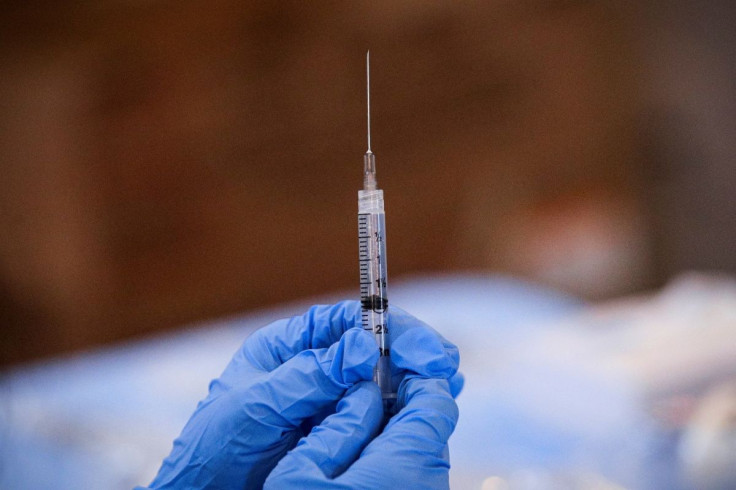Immunocompromised Man Who Had COVID-19 For 7 Months Successfully Treated With Vaccine
KEY POINTS
- Ian Lester tested positive for COVID-19 for more than seven months
- Lester suffers from Wiskott-Aldrich syndrome, a rare genetic immune disorder
- Lester's long-term COVID-19 infection was caused by his immunocompromised medical condition
An immunocompromised man from England who tested positive for COVID-19 for more than seven months straight has been successfully treated with a coronavirus vaccine, according to reports.
In the first-ever case of COVID-19 vaccine being used in treatment rather than prevention, a 37-year-old man from Wales, identified as Ian Lester, was given two shots of the Pfizer vaccine to clear off his infection, Wales Online reported.
Lester, who works as an optician in Wales, suffers from Wiskott-Aldrich syndrome, a rare genetic immune disorder that increases the risks of even mild infections like a common cold. He was diagnosed with COVID-19 after testing positive for the virus in December 2020. Although the symptoms of his infection were mild and cleared up within a month, he continued to test positive for the next seven months.
During this period, Lester had to spend his time in isolation at his home in Caerphilly, Wales, and even had to quit his job, as doctors believed that he would be contagious due to his weakened immune system.
"I began to feel like I was a prisoner in my own home and the days blurred into months," Lester recollected his days of isolation.
According to the scientists, Lester's symptoms were not "long-Covid," but his condition was due to a long-term infection caused by his immunocompromised medical condition.
"Ian really didn't have much of an immune response at all against the COVID virus. This infection was burbling along, but with his [weakened] immune system, it was just not enough to kick off a response sufficient to clear it." Dr.Mark Ponsford, a scientist at Cardiff University, told the BBC.
As anti-viral drugs for treating COVID-19 were not available during that time, the medics decided to administer Lester with the COVID-19 vaccine. The difference it made in Lester's immune response "was like night and day," Ponsford said, and Lester eventually tested negative by the end of August 2020.
"The vaccine really made a huge difference, in antibodies and T-cells, and utilized and squeezed every last drop out of what his immune system could do," Ponsford added.
Based on Lester's case, researchers believe that vaccines could be a cheaper and more durable option for treating COVID-19 infections in people with weakened immune systems.

© Copyright IBTimes 2025. All rights reserved.




















